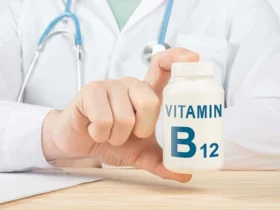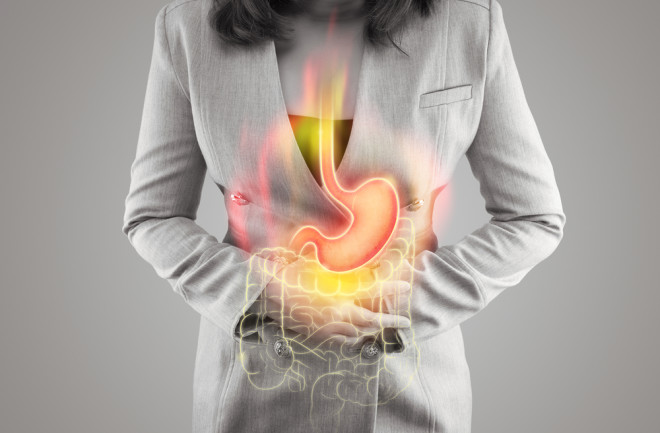Gastroesophageal Reflux Disease (GERD) is a prevalent digestive disorder that affects millions of people worldwide. Understanding the causes, symptoms, and available treatment options is crucial for individuals grappling with this chronic condition. In this comprehensive guide, we delve into the intricacies of GERD to provide valuable insights into its origin, the spectrum of symptoms it presents, and the diverse treatment approaches.
Unveiling the Causes of GERD:
GERD arises from the malfunction of the lower esophageal sphincter (LES), a muscular ring that separates the esophagus from the stomach. The LES usually acts as a valve, allowing food to enter the stomach while preventing stomach acid from flowing back into the esophagus. When the LES weakens or relaxes inappropriately, stomach acid can reflux into the esophagus, leading to the development of GERD. Several factors contribute to this dysfunction:
Hiatal Hernia:
A hiatal hernia occurs when a portion of the stomach protrudes into the chest cavity through the diaphragm. This displacement can weaken the LES, facilitating the backflow of stomach acid.
Obesity:
Excess body weight, particularly around the abdominal area, can increase pressure on the stomach. This added pressure can compromise the function of the LES, contributing to the development of GERD.
Pregnancy:
Hormonal changes during pregnancy, along with the pressure exerted by the growing uterus on the abdominal cavity, can lead to GERD. Symptoms may be more pronounced in the later stages of pregnancy.
Smoking:
Smoking weakens the LES and can interfere with saliva production, which plays a role in neutralizing stomach acid. Smoking cessation is a crucial step in managing GERD.
Certain Foods and Drinks:
Consuming acidic or spicy foods, citrus fruits, tomatoes, chocolate, coffee, and alcohol can trigger or exacerbate GERD symptoms in susceptible individuals.
Recognizing the Spectrum of GERD Symptoms:
GERD manifests through a diverse range of symptoms, which can vary in intensity and frequency among individuals. While heartburn is the hallmark symptom, GERD can present with other notable signs, including:
Regurgitation:
The sensation of stomach contents, including acid, flowing back into the throat or mouth is known as regurgitation. A sour or bitter taste can accompany this.
Chronic Cough:
A persistent cough that doesn’t respond to traditional treatments may indicate GERD. Stomach acid irritating the airways can trigger coughing.
Hoarseness or Sore Throat:
GERD-induced irritation of the throat can lead to hoarseness, a scratchy throat, or persistent soreness. These symptoms may be more noticeable in the morning.
Difficulty Swallowing (Dysphagia):
The narrowing of the esophagus due to inflammation or the development of strictures can result in difficulty swallowing. This may manifest as a sensation of food getting stuck in the throat.
Chest Pain:
Chest pain associated with GERD is often mistaken for a heart attack. It is essential to differentiate between GERD-related chest pain and cardiac issues.
Asthma-like Symptoms:
GERD can exacerbate or trigger asthma symptoms, including wheezing and shortness of breath. The relationship between GERD and asthma is complex and may require multidisciplinary management.
Exploring Treatment Options :
Effective management of GERD involves a combination of lifestyle modifications, dietary changes, and, in some cases, medical interventions. Tailoring treatment plans to individual needs is essential for optimal results:
Lifestyle Modifications:
Weight Management: Maintaining a healthy weight can reduce pressure on the stomach, minimizing the risk of acid reflux.
- Elevating the Head of the Bed: Sleeping with the upper body elevated can help prevent nighttime reflux.
- Avoiding Trigger Foods: Identifying and avoiding foods and beverages that trigger symptoms is crucial.
Dietary Changes:
Eating Smaller, More Frequent Meals prevents overfilling the stomach and reduces pressure on the LES.
- Avoiding Late-night Eating: Waiting at least two to three hours before lying down after a meal can minimize nighttime reflux.
- Limiting Alcohol and Caffeine: Both can relax the LES and increase acid production.
Medications:
- Antacids: Over-the-counter antacids can provide temporary relief by neutralizing stomach acid.
- H2 Blockers: These medications reduce the production of stomach acid and may be taken before meals to prevent symptoms.
- Proton Pump Inhibitors (PPIs): PPIs are potent acid suppressants and are often prescribed for more severe cases of GERD.
Surgical Options:
Fundoplication: This surgical procedure involves wrapping the top of the stomach around the lower esophagus to strengthen the LES.
The Importance of Professional Guidance:
While lifestyle modifications and over-the-counter medications can be effective for mild cases, persistent or severe symptoms warrant professional evaluation. Gastroenterologists can conduct diagnostic tests, such as endoscopy or pH monitoring, to assess the severity of GERD and tailor treatment plans accordingly.
Conclusion:
In conclusion, GERD is a complex condition with diverse causes and symptoms that can significantly impact an individual’s quality of life. Understanding the interplay of factors contributing to GERD and recognizing the spectrum of symptoms is crucial for timely intervention. Whether through lifestyle modifications, dietary changes, medications, or surgical options, a personalized approach guided by healthcare professionals can help individuals manage GERD effectively and regain control over their digestive health.












Leave a Reply